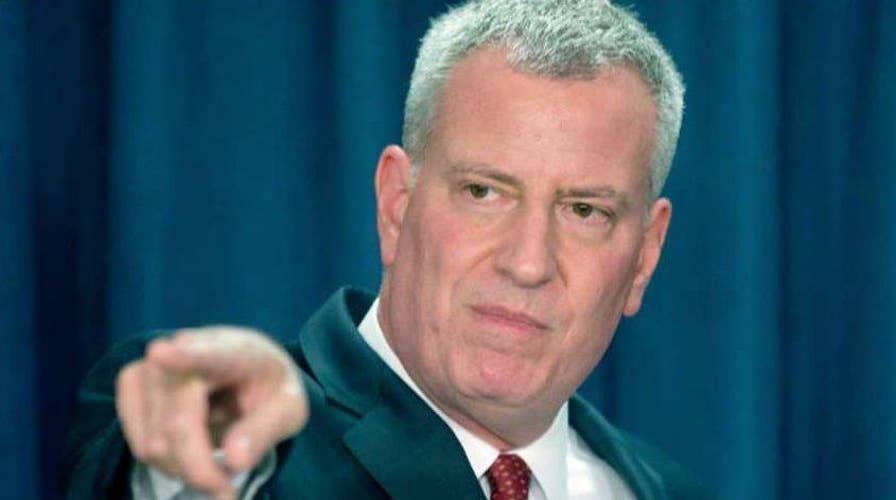De Blasio: Bully mayor who needs naps and will be reelected
A series of emails obtained by The New York Post shows the NYC mayor bullies his staff and needs morning naps. But the embattled mayor will like cruise to reelection. Why? What does this say about the state of New York City? #Tucker
New York City public schools will re-open their classrooms full-time this week to as many as 400 former teachers including many removed for incompetence or other disciplinary reasons – an attempt to ease a multi-million-dollar taxpayer burden from a 2005 deal that unions have since used to protect teachers from being fired.
The teachers are part of the city’s Absent Teachers Reserve, whose ranks have swelled to about 800 teachers since former Mayor Michael Bloomberg struck the deal 12 years ago. The teachers have worked in temporary positions while in the reserve pool.
Their return follows a recent policy change by current Democratic Mayor Bill de Blasio, whose administration is defending the move – having previously said taxpayers spent more than $150 million last year alone on teachers who weren't teaching full-time.
“The ATR has been wasteful for 12 years,” de Blasio Deputy Press Secretary Olivia Lapeyrolerie told Fox News on Monday. “For the first time, there’s a common-sense strategy to get ATR teachers who make the grade into permanent positions, and to hold them accountable if they don’t.”
According to The New York Times, teachers who are cycled back into the classroom will have a year to prove themselves, or else the city can move to dismiss them.
Roughly 30 percent of those in ATR reportedly were put in the “reserve” because of legal or disciplinary problems, while 40 percent are there because their schools were closed for poor performance. The other 30 percent are teachers who lost jobs because of budget cuts or declining enrollment, according to an analysis by the Times.
Among those in the pool is a teacher arrested on harassment charges, another caught sleeping in class and a special-education teacher disciplined for her alleged treatment of autistic children, including making them stand for 45 minutes to an hour, according to the Times.
The move to bring some of them back has raised concerns that problem teachers will be placed in struggling schools.
“What would have been the best thing for the kids of New York City schools … would have been to find a way to end the ATR without placing those teachers in schools,” Marcus Winters, a senior fellow at the Manhattan Institute, told the Times.
The mayor’s office said Monday that the teachers won’t be put in a permanent position if concerns have been raised about their prior performance or background.
The 2005 deal between Bloomberg and the United Federation of Teachers was purportedly intended to give principals more control over hiring teachers.
However, the union, which did not return a request for comment, has since been able to protect those teachers from being fired.
The cities of Chicago and Washington, by comparison, have limited to about one year the amount of time a teacher without a permanent position can continue to get paid.
Beyond concerns about incompetent or potentially dangerous teachers returning to classrooms, critics argue the worst teachers will end up at the most troubled schools.
“It’s a vicious cycle,” Bernard Gassaway, a former city principal and superintendent, told the Times.
De Blasio’s office says the mayor’s reforms have already shrunk the reserve pool by nearly 30 percent with the goal of cutting it by an additional 50 percent by 2019.
Fox News’ Joseph Weber contributed to this report.





